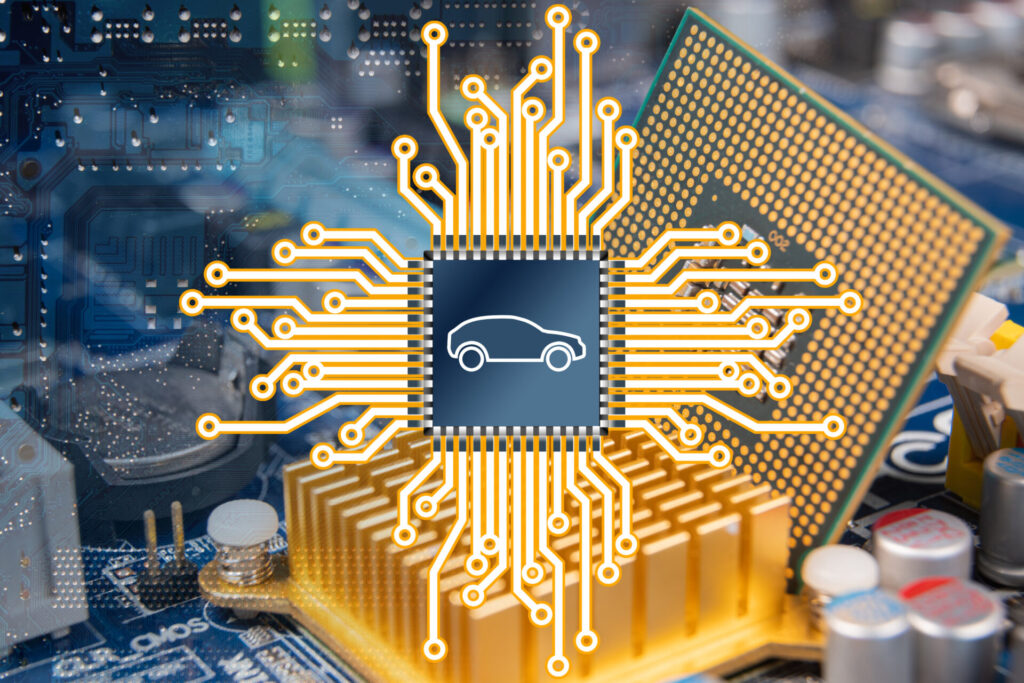Ever since the enactment of the U.S. CHIPS and Science Act, industry professionals have debated whether a disruption in the global semiconductor supply chain would be imminent. Should U.S. chip fabs stop relying so heavily on international suppliers — even if it comes with the major lift of reshoring manufacturing? What will be the long-term impact of CHIPS incentives and the Inflation Reduction Act, and will it benefit companies in the long run? Does America even have enough skilled workers to support fabrication and design?
Columbus has offered a positive response to all these questions over the past year, with companies like Intel choosing to invest in two semiconductor fabrication plants in New Albany. The Region has also seen much development in adjacent industries such as electric vehicles, leading many to consider the Midwest — and Columbus specifically — as a strong candidate for the next innovative U.S. chip manufacturing hub.
An Ecosystem of Smart Tech & Electrification
Organizations like the Center for Automobile Research (hosted by Ohio State University) and the Beta District have driven the Silicon Heartland forward for decades, but the Region has never reached its current level of tech-based activity. The Columbus Region has become a Midwest semiconductor network, with nationally recognized tech companies like IBM and data centers popping up on a regular basis.
A notable turning point came to Columbus when the city won the U.S. Department of Transportation’s first-ever Smart City Challenge in 2016. Upon winning the competition the city suddenly found itself the recipient of $50 million in seed funding to reimagine public transportation while fostering sustainability and improving quality of life. Smart Columbus has earned national recognition for the Region and its potential for innovation.
Now expansions from electric vehicle and battery manufacturers in the Region have become customary. In late 2022 Honda announced plans to invest in Fayette County in a joint venture with electronics manufacturer LG Energy Solution. Honda will also invest $700 million to retool its East Liberty Auto Plant and Marysville AutoPlant for battery component production. Hyperion is also moving its hydrogen fuel cell manufacturing and development headquarters west of Columbus, while European battery manufacturer Forsee Power will establish its United States headquarters and gigafactory in Franklin County.
Businesses across the Region also help build an ecosystem where electronic part suppliers and manufacturers have the collective capacity to support innovation.
Drawing a Shovel Ready Line in the Sand
With such a collaborative tech driven business community consisting of research, development and manufacturing facilities, the Region has truly risen as hub for U.S. chip fabs and adjacent industries. But trumping ecosystem is the availability of real estate — of which the Region has an abundance.
Intel broke ground on its 1,000-acre mega-site in Licking County in late 2022 — the largest single private-investment in Ohio history. The Region is renowned for its massive land availability in rural communities, recently being recognized as a top ten market for the largest industrial leases nationwide. In the 2022 report, CBRE findings showed four leases in Columbus totaling 4.3 million square feet, demonstrating the city’s ability to fulfill large scale manufacturing and development operations.
Real estate in the Region is also affordable, whether a business is looking for an industrial complex or developable land.
Skilled Talent for U.S. Chip Fabs
A high concentration of talent comes from in the Region’s 52 area colleges and universities and more than 20 Career and Technical Education (CTE) centers that help bolster fabrication skills. Columbus State Community College offers multiple areas of study, including programs in Electro-Mechanical Engineering and electronic engineering Technology.
With a growing demand for skilled talent in the semiconductor industry, the city of Columbus has put a strong emphasis on developing educational programs that can provide its workforce with the skills needed to succeed. Intel is funding higher education at eight lead institutions in Ohio, including The Ohio State University, Columbus State College and Ohio University.
But Columbus’ tech talent doesn’t begin with higher education — it begins with high school. Programs such Metro Early College High School’s Design Learning Center provide students with hands-on experience in the fields of automated systems digital electronics, engineering and robotics.
Strengthened by its community of businesses, research institutions and highly skilled talent at every stage of tech development, Columbus is a hub for U.S. chip fabricators and electronic tech companies. Contact us to see how your business fits into the Region’s diverse industries.

